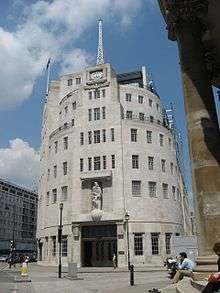BBC Allied Expeditionary Forces Programme

The BBC Allied Expeditionary Forces Programme was a radio station in the mid-1940s.
History
At the outbreak of World War II, the BBC had merged its two nationwide radio services, the BBC Regional Programme and the BBC National Programme, into a single BBC Home Service. On 7 January 1940, this was supplemented by a station aimed at British forces serving at home (and, until Dunkirk, in France and Belgium), the BBC Forces Programme.
With the arrival of troops from the United States and Canada in the run-up to D-Day, the Forces Programme was replaced by a service more tailored to the new audience, the BBC General Forces Programme, which also broadcast on shortwave for service people in the Asian theatre of operations.
When Operation Overlord, the Allied invasion of occupied Europe, began, it was felt by the Allied governments that a joint service of entertainment, news and information for the fighting troops would be a better use of resources than providing separate services from American Forces Network (AFN), BBC and Canadian Broadcasting Corporation (CBC) stations.
The combined station, called the Allied Expeditionary Forces Programme and operated by the BBC on behalf of the Allied forces, began broadcasting on 7 June 1944, the day after the Normandy landings, on 514 metres (583kHz), providing a service dominated by cabaret and swing music.
The station closed soon after VE-Day on 28 July 1945 when the British Forces Network, AFN and CBC had established their own services in the areas each force was occupying. The following day, the BBC Light Programme began.
References
- Anonymous, Northern Star Radio Heritage undated; accessed 15 February 2006
- Millward, David "Morale-raising radio from the depths of Broadcasting House", London: The Daily Telegraph 5 June 2004
- Grace, Alan This Is the British Forces Network: The Story of Forces Broadcasting in Germany London: Alan Sutton Publishing 1997 ISBN 0-7509-1105-0